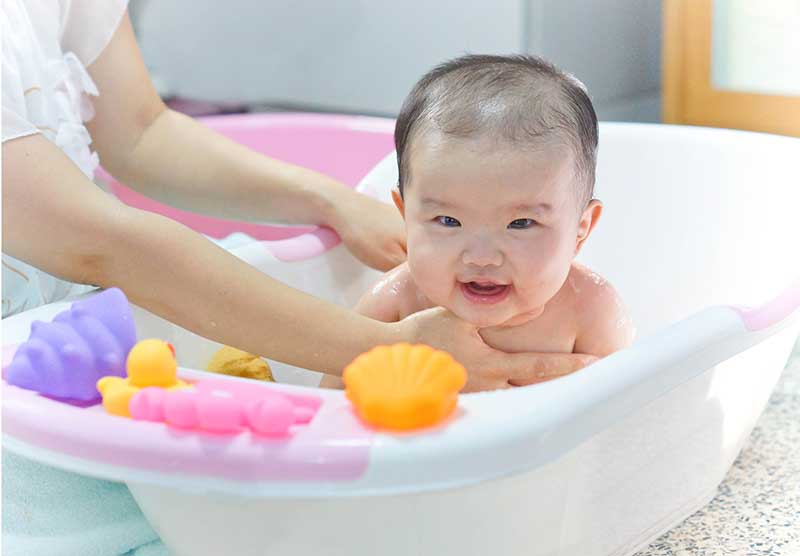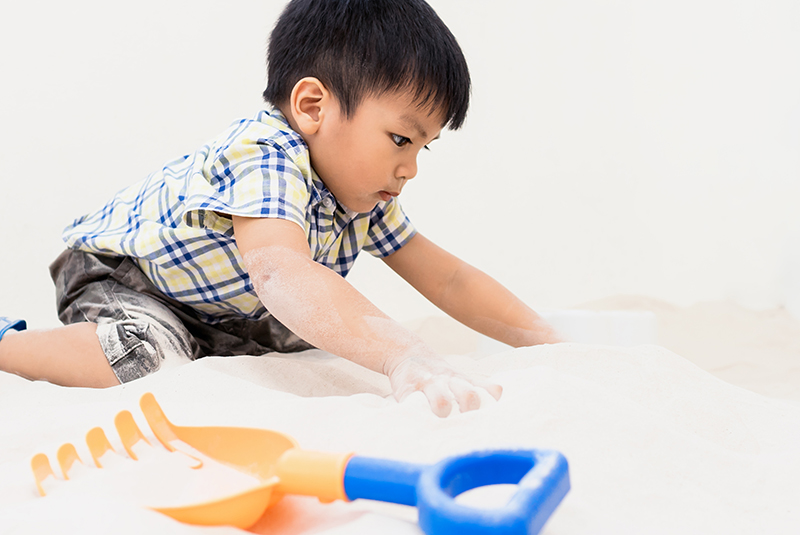Families For Life | Emotions and Play: Toddlers

DID YOU KNOW?
Bath time is a good way to soothe your baby but it can also be a fantastic learning opportunity for your child. Learn how you can engage him during bath time.
READ MORE

Along with empathy and pride, children start feeling frustrated when they reach toddlerhood. In fact, frustration is an emotion you’ll probably see a lot of at this age!
Toddler emotions and play
Toddlers are little people with big feelings that they don’t always have the words for.
That’s where you come in. Because play is the natural way children learn and develop, playing with your toddler gives him a chance to express and practise managing his feelings.
You can also help your toddler recognise what she’s feeling and why. For example, if she’s sad because her toy is broken, you can name that feeling for her by saying something like, ‘I can see you’re sad that your toy is broken. It’s OK – we can fix it’.
Toddlers watch how you express your feelings, and you can set a good example when you manage your feelings well. For example, you send a powerful message when you respond to your frustrated toddler with calmness and understanding.
What to expect from toddler emotions
Your toddler will probably:
become more aware of being an individual at 1-2 years
start to feel embarrassment, empathy and envy around 1½-2 years
begin to be more independent and want to do things without your help
be able to wait his turn and control some emotions at 1-2 years
start to compare his behaviour to other children’s – for example, he might tell you that ‘Chen Kuo didn’t wait his turn, but I did’
start to feel and show pride at times, saying ‘I did it!’ after building a tower of blocks.
Your toddler is also learning about a big new emotion – frustration. Your child is likely to:
get frustrated – and be noisy about it – when she doesn’t get her way
not understand why she can’t have what she wants, when she wants it
be quite bossy about what she does want
find it hard to wait for things or stop playing when it’s time to go home
struggle to keep big emotions under control sometimes – you might see some tantrums.
By the age of three years, most toddlers start to feel emotions like guilt and shame. Your toddler needs lots of reassurance and support from you to help him understand these new feelings.
Play ideas to encourage toddler emotions
Play is one of the best ways for young children to practise expressing and managing their feelings. Great ways to encourage this include:
playing and sharing with children of similar ages
imaginative play with puppets, toys or old clothes – for example, your child could pretend to drive a car, or be a firefighter or a vet
singing and dancing
messy play with sand, mud or paints where your toddler can express feelings – she can happily slap sand and mud around, or make big angry paint strokes if she wants to
reading stories with characters who are experiencing feelings that your toddler is also going through
outdoor play in a park or open space where your toddler can run, tumble or roll around.
It’s a good idea to let your toddler take the lead with these play activities. But even if your child wants to be the boss during play, you still have an important role in supporting your child if he gets overwhelmed, or stopping the play if it puts him at risk of injury.
All children develop at their own pace. If you’re concerned about any aspect of your child’s development, it’s a good idea to talk with your paediatrician or General Practitioner (GP).
© raisingchildren.net.au, translated and adapted with permission
Explore more